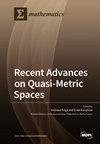Imputing Missing Data in One-Shot Devices Using Unsupervised Learning Approach
IF 2.3
3区 数学
Q1 MATHEMATICS
引用次数: 0
Abstract
One-shot devices are products that can only be used once. Typical one-shot devices include airbags, fire extinguishers, inflatable life vests, ammo, and handheld flares. Most of them are life-saving products and should be highly reliable in an emergency. Quality control of those productions and predicting their reliabilities over time is critically important. To assess the reliability of the products, manufacturers usually test them in controlled conditions rather than user conditions. We may rely on public datasets that reflect their reliability in actual use, but the datasets often come with missing observations. The experimenter may lose information on covariate readings due to human errors. Traditional missing-data-handling methods may not work well in handling one-shot device data as they only contain their survival statuses. In this research, we propose Multiple Imputation with Unsupervised Learning (MIUL) to impute the missing data using Hierarchical Clustering, k-prototype, and density-based spatial clustering of applications with noise (DBSCAN). Our simulation study shows that MIUL algorithms have superior performance. We also illustrate the method using datasets from the Crash Report Sampling System (CRSS) of the National Highway Traffic Safety Administration (NHTSA).使用无监督学习方法推算一次性设备中的缺失数据
一次性设备是只能使用一次的产品。典型的一次性装置包括安全气囊、灭火器、充气救生衣、弹药和手持信号弹。它们大多是救生产品,在紧急情况下应具有高度可靠性。对这些产品进行质量控制并预测其在一段时间内的可靠性至关重要。为了评估产品的可靠性,制造商通常会在受控条件下而非用户条件下对产品进行测试。我们可以依靠公共数据集来反映产品在实际使用中的可靠性,但这些数据集往往会丢失观测数据。实验人员可能会因为人为失误而丢失协变量读数信息。传统的缺失数据处理方法可能无法很好地处理一次性设备数据,因为这些数据只包含其存活状态。在这项研究中,我们提出了 "无监督学习多重估算"(Multiple Imputation with Unsupervised Learning,MIUL)方法,利用层次聚类、k-原型和基于密度的带噪声应用空间聚类(DBSCAN)来估算缺失数据。我们的模拟研究表明,MIUL 算法性能优越。我们还使用美国国家公路交通安全管理局(NHTSA)的碰撞报告采样系统(CRSS)数据集对该方法进行了说明。
本文章由计算机程序翻译,如有差异,请以英文原文为准。
求助全文
约1分钟内获得全文
求助全文
来源期刊

Mathematics
Mathematics-General Mathematics
CiteScore
4.00
自引率
16.70%
发文量
4032
审稿时长
21.9 days
期刊介绍:
Mathematics (ISSN 2227-7390) is an international, open access journal which provides an advanced forum for studies related to mathematical sciences. It devotes exclusively to the publication of high-quality reviews, regular research papers and short communications in all areas of pure and applied mathematics. Mathematics also publishes timely and thorough survey articles on current trends, new theoretical techniques, novel ideas and new mathematical tools in different branches of mathematics.
 求助内容:
求助内容: 应助结果提醒方式:
应助结果提醒方式:


